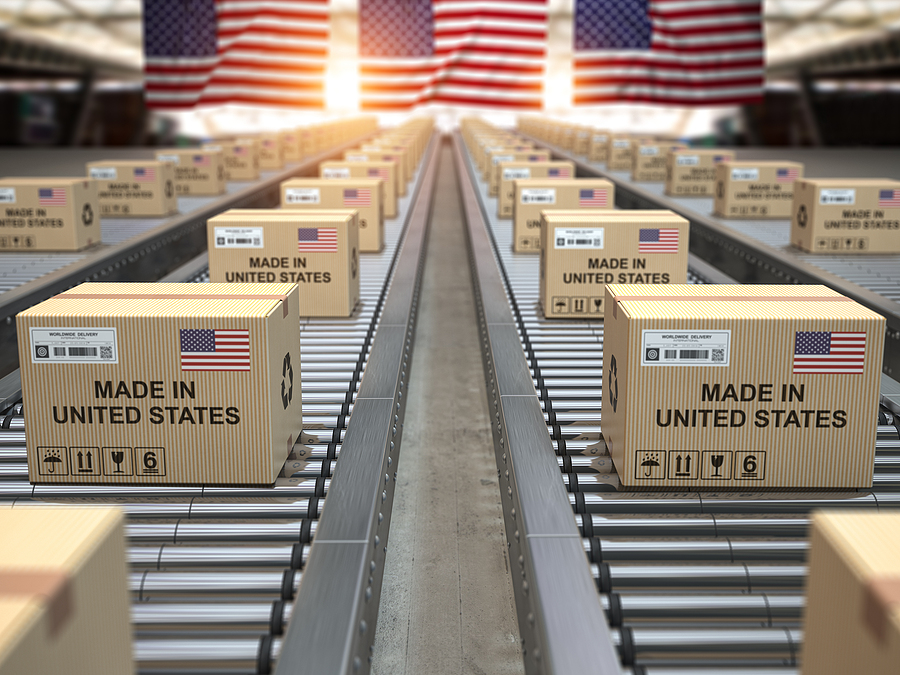
Why Manufacturing is in the National Interest
“I have a foreboding of…when the United States is a service and information economy; where nearly all manufacturing industries have slipped away to other countries…” – Carl Sagan, 1995
We’ve heard the rhetoric that rebuilding manufacturing is in the national interest, but people who are unfamiliar with manufacturing often ask why. We know stories about how a Ford auto assembly plant was converted to build bombers during WWII. While that’s true, having factory capacity to build munitions for national defense is an oversimplification of the issue.
Two things make a nation great: a strong military and a strong economy. This is classical “guns and butter” economics. If you have a strong economy, but not a strong military, you are Japan. If you have a strong military, but not a strong economy, you are Russia. Arguably, what underpins both a strong economy and a strong military is innovation. In this article, we will explore why a strong manufacturing sector is not only important for independence through supply chain resilience, but more importantly, the ability to stay at the cutting edge of innovation.
This may come as no surprise, but the world is a competitive place. What may come as a surprise is that manufacturing only accounts for 10% of the US GDP according the National Institute of Standards and Technology NIST, however manufacturing has an oversized effect on innovation with 55% of all patents and 70% of all R&D spending per the US Department of Defense. Let’s consider the hard and soft sides of the high-tech innovation race that is capturing the world’s imagination – Artificial Intelligence.
For hardware, the most advanced chips that run AI are largely produced in Taiwan. AI hardware for processors, storage, and robotics, relies on familiar elements such as aluminum, lithium, silicon and copper, as well as unfamiliar elements like gallium, germanium, and neodymium. There are an estimated 60 different metals in your smart phone. Minor metals critical to high-tech industries are often found with primary metal ore bodies in the US, but the US has not developed the technology to refine these “by-product” minor metals, so they are sold to China in crude form for further refinement. Apple has announced they are investing $500B in US manufacturing, but they will still be reliant on the minor metals and rare earth minerals produced by China. For national security objectives to be achieved, innovation must reach through the entire supply chain.
On the soft side of AI (sometimes called “learning”), the US is generally considered the leader in AI model training, particularly in terms of research, development, and investment in notable machine learning models. How much of an advantage the US has over other nations (notably China) is debatable considering how quickly companies like Deepseek can respond to protectionist policies. However, the promise of AI is not in the hardware, nor in the learning logic itself, but in the application of AI.
Here it is useful to divide industries that produce products versus those that produce services. We are seeing how AI is impacting service industries such as entertainment, finance, and education, but AI will also profoundly affect manufacturing and transportation by improving automation, quality, predictive maintenance, and physical production. All tangible things that humans consume require some form of manufacturing and many layers of transportation and warehousing. The more manufacturing a nation has inside its borders, the more benefits it will realize from the innovative application of AI. Winning the AI race means not only producing the AI the rest of the world will use, but just as importantly, it means realizing the economic and military benefits promised by this revolutionary innovation in manufacturing everything from bacon to bombs.
Another important principle is that manufacturing companies provide a local economic leverage that service industries lack. Let’s consider mining again for this principle. If an ore body is discovered in the US, it is impossible to move its production overseas. Compare this to an APP based startup whose “product” is a service. Designing and coding, accounting, sales, customer service and similar service work in the “thought economy” can all be expatriated much more easily.
Local manufacturing jobs provide leverage in the local labor market. For every manufacturing job that is created, an estimated seven to twelve new jobs are created in other related support functions and industries. Among the support functions we find quality, safety, environment, sales, planning, procurement, warehousing, transportation, legal, skilled trades, and maintenance. Additionally, most manufacturing requires a supply chain with tier 1, 2, 3 and more suppliers.
Manufacturing jobs pay well, and the future talent pool is diminishing as more college graduates prefer to work in tech and service industries. In 2015, mining engineering programs in the US graduated 1,500 students compared to only 600 students in 2022. Skilled trades workers are in short supply and are commanding premium wages. One poll found that 57% of Gen Z students list “social media influencer” as their dream job. Long gone are the days when high school graduates joined unions and worked assembly lines for steady wages and good benefits. Gen Z graduates prefer to try to write a new million-dollar app or get a million followers to watch their trek through Bali. Consequently, we are slowly losing the capacity, and the capability, and even the will to make products in factory jobs.
Making tangible stuff is hard. Manufacturing requires significant planning and coordination between engineering, development, sales, finance, procurement, logistics, and operations. I am fond of saying, “It is easier to eat than it is to produce.” So much of our economy today is based on consumption rather than production. No nation has sustainably consumed its way into prosperity. Producing in the thought economy brings “amenity” value for consumers, but producing in the tangible economy provides national security.
USC Consulting Group is an operations management firm that has helped thousands of clients improve their manufacturing operations since 1968. Odds are, we understand your challenges and can confidently help you find solutions. Please contact us to learn more.
*This article is written by USC Consulting Group’s Supply Chain Practice Leader David Newman.






